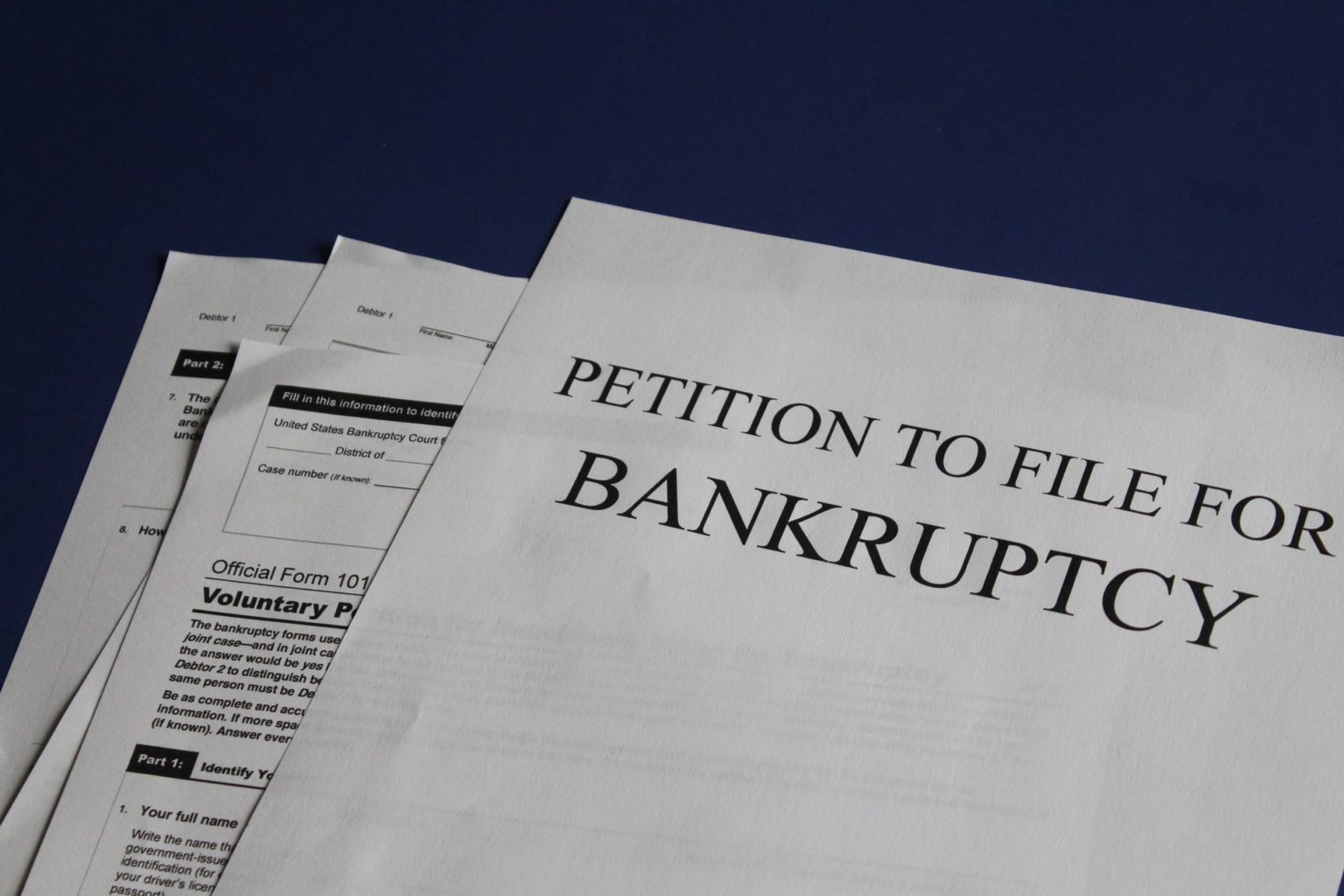It’s easy to rack up debt in an economy that leans heavily upon it. From the time you graduate from high school, you’re encouraged to become a borrower to continue your educational pursuits. Even if you entered the workforce right out of high school, you needed transportation to and from work. Cars aren’t cheap, and most people have to take on debt to get a reliable automobile. The point is that there isn’t very much you can get in life without having to borrow at some point.
Unfortunately, debt can mount until it’s beyond a debtor’s ability to repay it. One of the main problems people have when it comes to debt is that they’re not financially literate, but it’s too late to become a financial whiz once your debt’s already impossible to repay. Many people lose all of their valuables, and even their wages, because of credit card debt, school loans, and mortgages. Filing for bankruptcy could help you protect some of your assets and afford you more time to pay your debts, but it’s a tumultuous and lengthy process. Continue reading to get some tips to help you safeguard your assets and livelihood during your bankruptcy.
Avoid bankruptcy at all costs.
Being in debt is stressful and can leave you desperate for answers and grasping for anything that can help you stay afloat. Many debtors who are in over their heads run excitedly to bankruptcy like teens to a bonfire on the beach, but it’s not the magic debt eraser button that many people think it is.
The best thing you can do is learn how to manage your money. Once you declare bankruptcy, it stays on your record for seven years, and creditors and lenders will see it every time you apply for a loan or financing. If you can find a way to pay your debts and avoid bankruptcy altogether, that’s the ideal solution.
Having a bankruptcy in your credit history won’t automatically disqualify you from getting loans and financing, but it’s a black eye on your record. Get smart about your money before you find yourself in a situation of financial despair. There’s no shame in filing for bankruptcy, but it should be your last, not your first, option for handling your debt.
Hire a bankruptcy attorney.
If you decide that bankruptcy is the only, or best, option available to you, it’s critical to proceed carefully. Because bankruptcy laws are so strict and the penalties for fraud stiff, it’s essential to get and heed sound legal advice. According to Nick Thompson, a Louisville bankruptcy attorney, your first step in the bankruptcy process should be to find a lawyer to protect your interests.
It can be hard to find the best bankruptcy lawyer for your case. The best way to find a lawyer you can trust is by reading through Louisville’s bankruptcy attorneys’ online reviews. There are also online registries that offer attorney listings, ratings, and customer testimonials and reviews.
The Law Office of Nick C. Thompson, Bankruptcy Attorney, has a perfect Avvo rating and has a long reputation in the Louisville area for providing excellent counseling for clients facing bankruptcy, foreclosure, and divorce. It’s critical to get an attorney who has experience handling bankruptcy cases. Sometimes, lawyers need clients so desperately that they veer outside of their lane to get business. Only an attorney who’s focused on bankruptcy can provide you with the highest quality of service through your bankruptcy case.
Your lenders and creditors may try to hit you with setoffs.
It’s bad enough that you have taxes and entitlements coming out of your paycheck, but it can be crippling when lenders and creditors start taking a bite out of your check as well. One of the benefits of filing for bankruptcy is that bankruptcy proceedings put an immediate halt to wage garnishments.
However, just because they can’t touch your paycheck anymore doesn’t mean you’re out of the woods. They can still deduct money from any checking or savings account they have access to through setoffs. They can’t just go renegade and wipe you clean, but they can still declare setoffs against you during the bankruptcy process. You can prevent creditors from making withdrawals from your accounts by moving your money to accounts that don’t have any debt attached to them. You may even have to open accounts with different institutions.
Be deliberate when deciding which type of bankruptcy case to file.
The main two types of bankruptcy that people file are chapter 7 and chapter 13, and there are some stark contrasts. Chapter 7 allows you to wipe out all of your debt by liquidating your assets. Chapter 13 will enable you to pay your debt to a bankruptcy trustee over 3-5 years, and you get to keep your assets.
Before you file for chapter 7 bankruptcy, you need to be sure about your decision. You’ll be debt-free, but you’ll also have to forfeit your home, car, and any other assets the trustee can sell to pay off some or all of what you owe your creditors and lenders.
You can’t outwit the system.
The big problem with fraudsters is that they think they’re smarter than the system. In reality, that makes them far less intelligent than they think. If you file for bankruptcy, you must be honest about your assets, income, and debt. Bankruptcy fraud is punishable by up to five years in prison and a quarter of a million-dollar fine.
Not to mention, if a judge determines that you’ve committed perjury as well as fraud, then you’ll face even stiffer fines and more time. It carries a maximum sentence of up to five years and a maximum fine of $250,000 for each perjury charge. Don’t find out the hard way that the IRS is good at their job. Your bounty hunter cousin may know how to find out if someone is in jail and get them out quickly, but he can’t help you once the judge finds you guilty of fraud and perjury. Luckily, if you handle your bankruptcy case the right way, you won’t need your cousin’s services.
Start rebuilding your credit.
The main benefit of declaring bankruptcy is that it gives you a second chance at building a good credit history. Some creditors may blacklist you for a couple of years for your bankruptcy. However, once your debts are discharged, your credit score could see a significant bump.
Despite what you may have heard, there is life after bankruptcy. You will be able to get credit again. Once you’ve completed the bankruptcy process, it’s critical to start rebuilding your credit immediately. Hence, you’re more credit-worthy once the bankruptcy isn’t such a glaring blemish on your credit history.
One of the best ways to start rehabilitating your credit is to get a secured credit card. You pay a deposit on a secured credit card, but as long as you keep up with your payments, you’ll get your deposit back after a year. Paying your credit balance may also qualify you for an unsecured credit card.
Some buy-here-pay-here dealerships accept your job and sufficient income as creditworthiness, so you may be able to get a car through a dealership that does in-house financing. Remember, bankruptcy isn’t the end of the world—it’s a fresh start.




